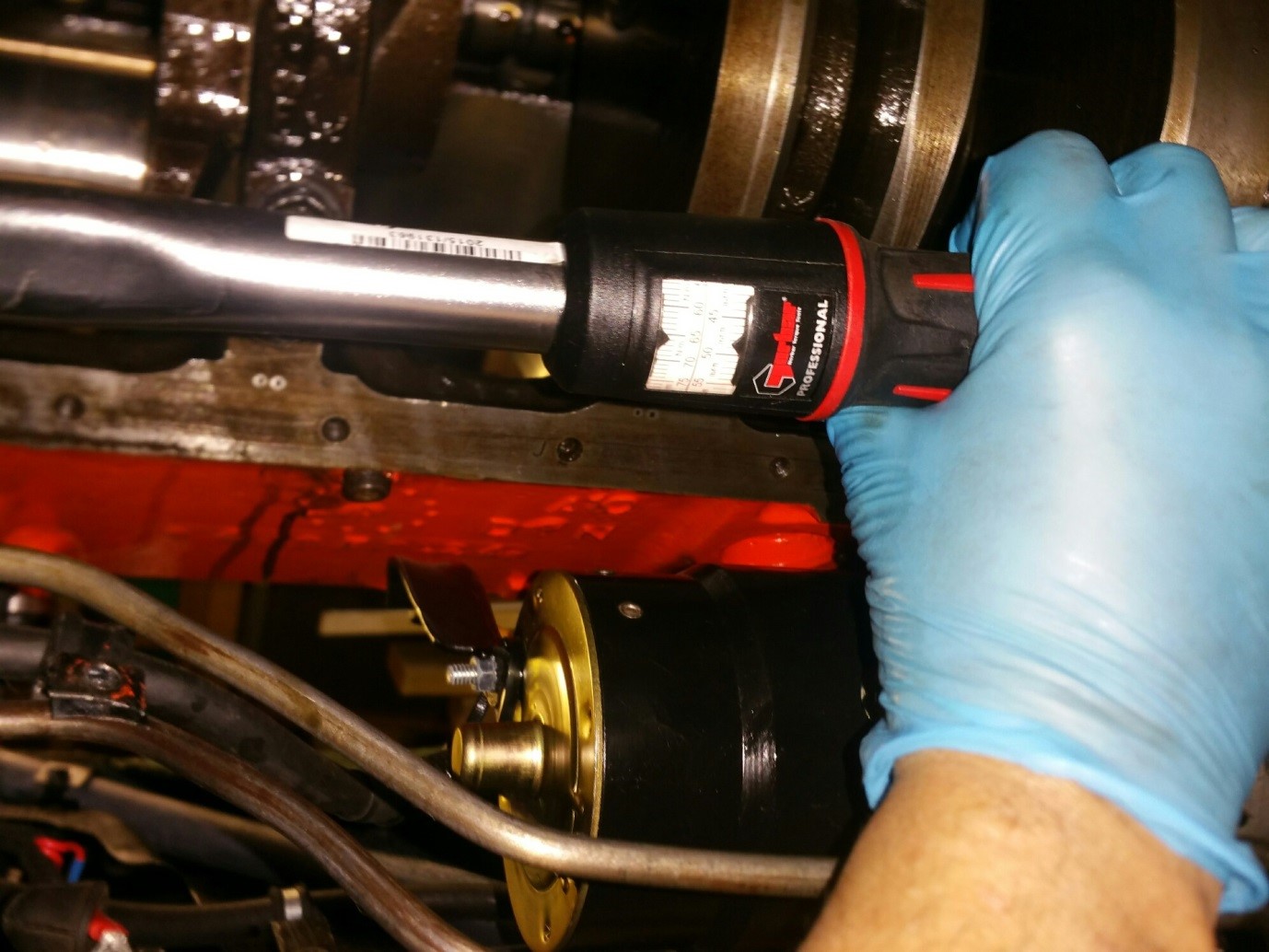24Feb
The Devil is in the Detail
This is aimed at anyone that has ever wondered - Why do torque wrenches come with a fine tooth ratchet? why would I ever need one?
Well clearly in my case as Engineering Manager for Norbar, I am only to aware as to the need for a fine tooth ratchet, and recently whilst performing some fairly major ‘open heart surgery’ to my American V8, I had to use a wrench (Mdl 100 with Industrial ratchet) in a situation which I thought at the time would be perfect as an example to explain why fine tooth ratchets are important.
To cut a long story short, I have recently changed the piston rings on my engine, unfortunately as part of a rebuild the kit were incorrect oil control rings. Yes I probably should have spotted this but the variation between the correct and incorrect control ring is very minimal at best. As the car had recently been sprayed I did not want to lift some 260 Kg of engine out using a lifting hoist and risk damage to the new paint, so I decided to do the work with the engine in the car. After removing the mounting bolts from the chassis and a multitude of other accessories the engine was jacked up by around 70 mm to allow the sump pan to drop and be removed. I now had access to the whole crankshaft and connecting rods. After removing all of the connecting rod caps, I removed all 8 pistons and removed the incorrect oil control rings and refitted the correct rings.
Now let me tell you there is an awful amount of oil that is thrown and pumped around in the bottom of any internal combustion engine and you do not want to spend any more time than you need to underneath an engine with the sump removed it literally rains oil! So you really need to have the correct tools at hand to minimise time in such an environment.
You can imagine that having to raise the engine in order to clear the chassis cross member space is limited, the rear of the engine is easier to access as the cross member is toward the front of the engine and out of the way, but as each piston is installed access to the connecting rod nuts becomes harder and harder.
So que the Norbar Professional Mdl 100 Industrial with its 72 tooth ratchet, each ‘click’ of course resulting in a 5 degree ‘swing’ of the tool. When access is restricted as in this case, possibly only allowing a 15 degree swing, it is easy to see why the 72 tooth ratchet is essential to perform the correct tightening of fasteners in confined spaces.
This is of course a fairly extreme example, however to anyone assembling vehicles on a production line, mechanics working on cars on a daily basis and even keen weekend DIY’ers the problem of access when torqueing fasteners is a very real one.
